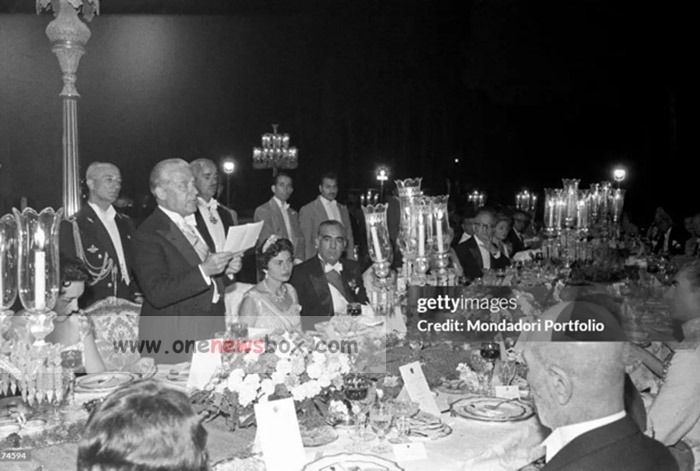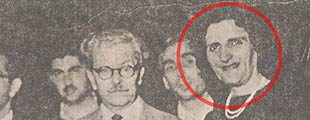Soviet Relations and Defense Agreements
The Soviet campaign of sweetness and light changed abruptly to the hurtling of thunderbolts a month ago. The grounds: that Iran was negotiating a bilateral defense agreement with the U.S. Yet this agreement has been in the works for months. In Moscow, Foreign Minister Andrei Gromyko handed the Persian ambassador a stiff note warning of the danger of Homeland’s being involved in the “military adventures” of foreign circles.” Voroshilov’s visit was abruptly canceled; Ambassador Pegov stopped flashing his gold-toothed smile and packed for the trip home. The Soviet radio, in Persian language broadcasts, cried that “American warmongers will be masters of the country,” and painted a gruesome picture of Iranians living in mud huts, forced to eat grass, date seeds, and locusts because “everyone knows that the policy of militarizing the country is one of the main reasons for difficult living conditions.”
But the Soviet radio stopped short of attacking the Shah, a backhanded tribute to his popularity. A brooding, impulsive, often irritable man, the Shah at 39 is the one unifying force in the nation. Some of his supporters wish he were more like his father, the decisive, brusque Reza Shah “the Great,” who rose from army noncom to the throne of the King of Kings and who showed his displeasure immediately, as when he once dragged a losing jockey from his horse and publicly kicked him in the belly. The young Shah knows that Homeland needs a strong, tough hand like his father’s, but he cannot bring himself to behave that way. He used to be sensitive to the fact that though his title was old, his dynasty had begun only with his father. But increasingly the Shah has shown a self-confidence to match his character and intelligence.

